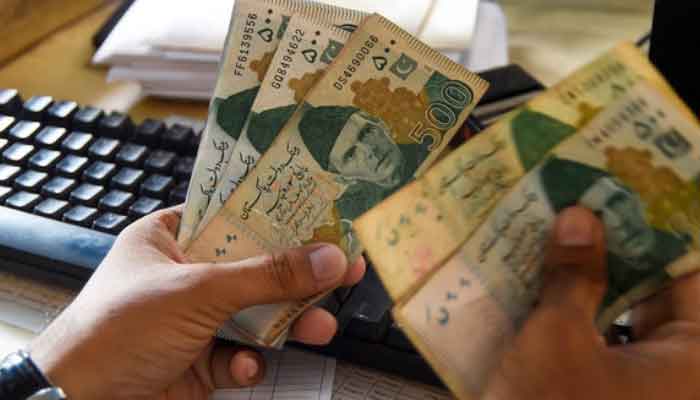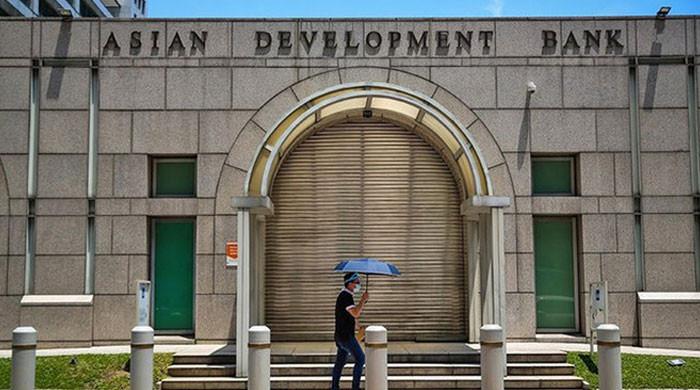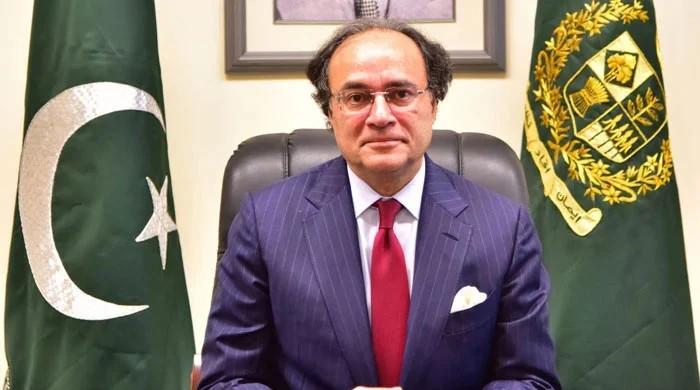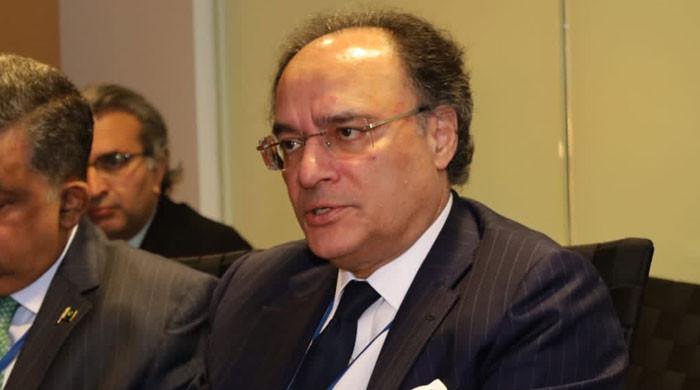Rupee likely to trade range-bound ahead of budget
Traders say rupee is likely to trade within the current range as investors won’t take long positions
June 04, 2023

- Forex trader says investors won’t take long positions.
- Trader predicts demand will likely be flat until after the budget.
- SBP is expected to keep its key policy rate unchanged at 21%.
KARACHI: Ahead of the federal budget for the fiscal year 2023-24, the rupee is expected to trade range-bound in the interbank market, with most players keeping to sidelines until the new finance bill as well as the monetary policy is unveiled, The News reported Sunday.
Finance Minister Ishaq Dar is scheduled to present the federal budget on June 9 (Friday) while the State Bank of Pakistan (SBP) will announce its monetary policy decision on June 12 (Monday)
A foreign exchange trader said: "The rupee is likely to trade within the current ranges as the investors won’t take long positions. Demand will likely be flat until after the budget because there is some uncertainty about what might be announced in it."
During the outgoing week, the rupee traded in narrow ranges, ending the week at 285.68 per dollar on Friday from 285.42 on Monday. It weakened by 0.09% against the dollar.
The local currency, however, had a significant comeback in the open market, rising Rs15 against the greenback. The exchange rate increased from 315 to 300 per dollar.
After the State Bank permitted commercial banks to purchase US dollars from the interbank market to settle card-based cross border transactions through international payment schemes, the value of the rupee significantly increased.
Another factor contributing to the rupee's recovery was the Intrnational Monetary Fund's (IMF) recommendation to the government to focus on restoring proper foreign exchange market functioning. The IMF was concerned about the widening spread between official and kerb market rates.
“In spite of the acrobats in the open market, in which rupee gained between Rs10-15, the fundamentals haven’t changed,” said Tresmark in a weekly note.
“The SBP has started clearing airline payments, which were blocked for months. Pressure in the open market will continue as many imports are being conducted through the hawala/hundi channel,” it added.
“Overall, considering the government’s intention to control the local currency, rupee still looks range bound in the coming weeks in the interbank market,” it added.
Pakistan’s foreign exchange reserves declined by $218 million to $9.513 billion. The reserves held by the SBP fell by $102 million to $4.090 billion.
However, the concerning area is attrition on the reserves held by commercial banks, which decreased by $116 million to $5.422 billion. Exports dipped 12.14% to $25 billion in 11 months of the current fiscal year.
SBP is expected to keep its key policy rate unchanged at 21% in the upcoming policy review as the inflation will most likely ease in June due to the high base effect, lower commodities prices globally and demand erosion.
This view is further strengthened by looking at price action in the bonds and swap markets, which have consolidated at lower levels.
“Rupee has remained largely range-bound in the last few weeks, where as even political temperatures have receded. Current account has been in surplus in the last two months and is expected to clock in $180 million surplus in May as well. All these factors will contribute to a no-change in interest rates sentiment,” said Tresmark.
The timing of the monetary policy, just two days after the expected budget, will be tricky to navigate for traders. Not only will the budget spell out the economic and growth outlook, but its repercussions on how the IMF will perceive it will be crucial for assessing medium to long term impact.
“Any tactics to buy votes by giving subsidies or increase revenue by burdening the existing tax base will quickly send the markets in to a tailspin, as even the current government has acknowledged that there is no Plan B without the IMF,” the weekly note said.











